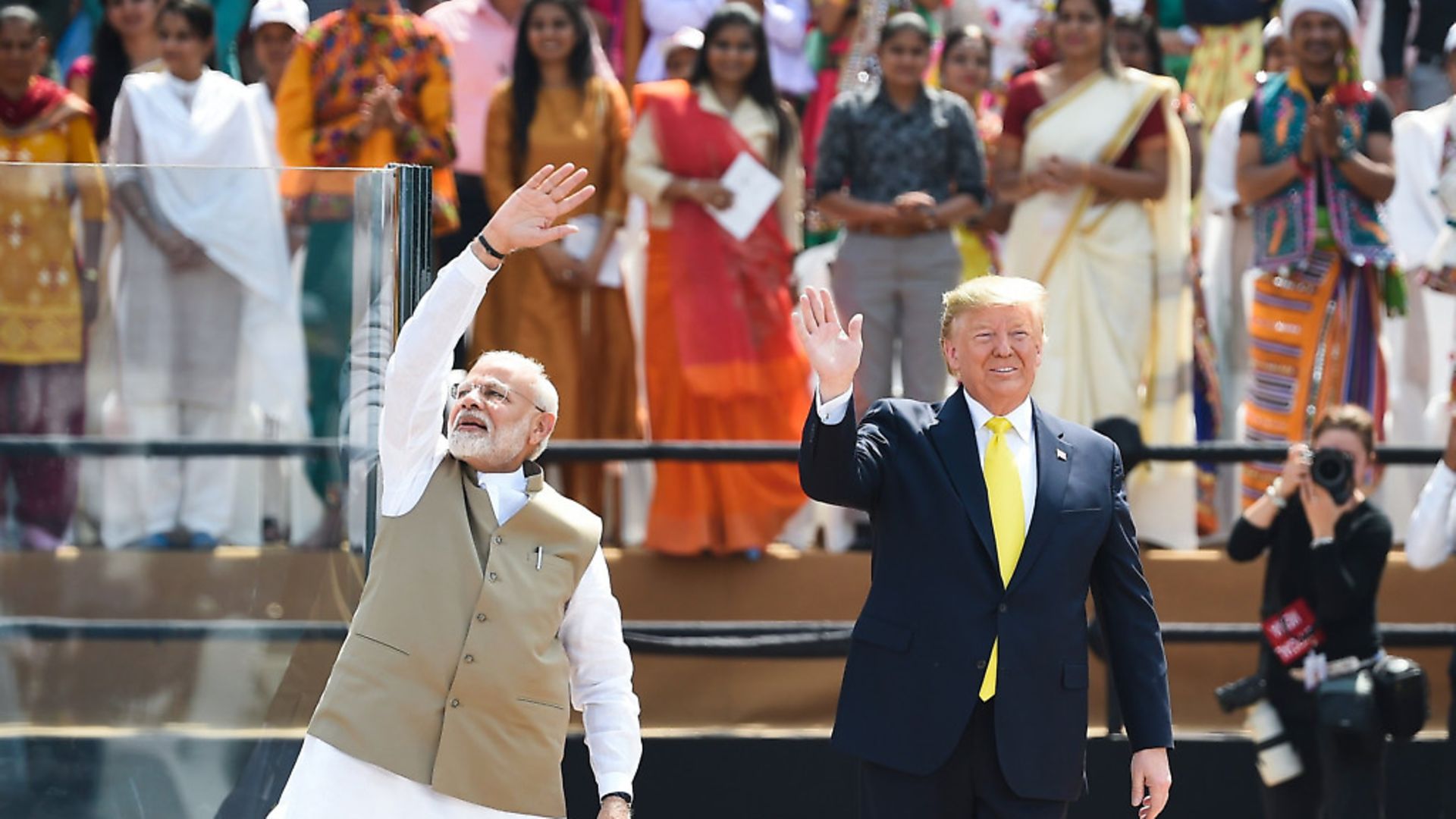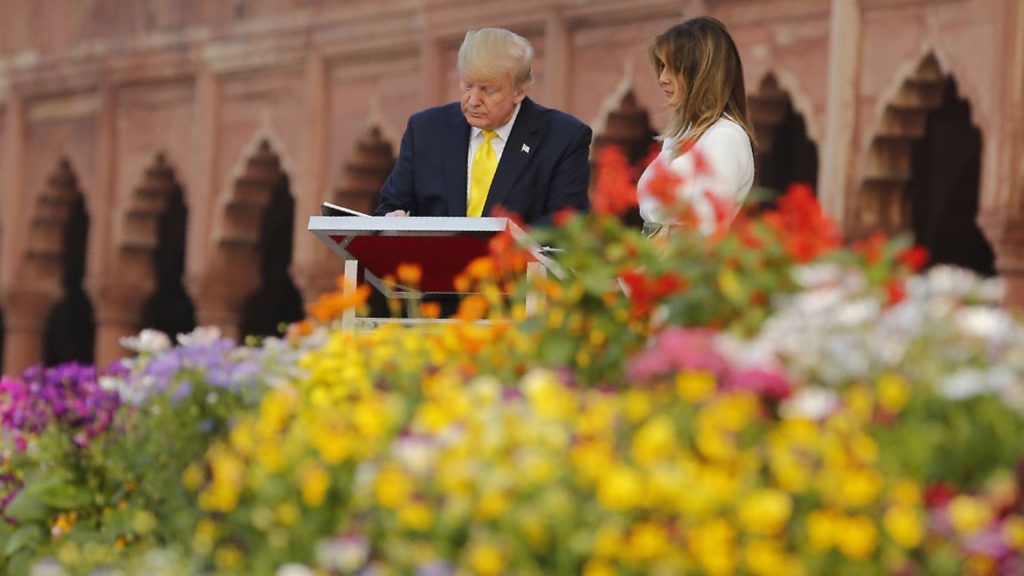
The US and Indian leaders are natural allies, with Boris Johnson the odd one out, says Tom Wilkinson.

Donald Trump received the pomp and circumstance of a Maharaja during his first official state visit to India this week. The US president boasted seven million well-wishers would welcome his arrival. The Indian government erected scores of billboards picturing the president and Indian PM Narendra Modi cheerily smiling side by side. The world’s largest cricket stadium was packed out with one hundred thousand spectators for his rally in Modi’s home state of Gujarat. Minus the armoured elephants and glittering regalia, it’s not far off from the lavish imperial pageants of the British Raj-era.
Welcoming the most powerful politician in the world offers a much-needed distraction from domestic troubles for Modi. Unlike in Britain, Trump is popular with a great many Indians. It is unlikely Modi would roll out the red carpet like this for Boris Johnson. Despite the existence of much good will towards Britain in India, the way the British PM invokes the glory of the empire to bolster support for Brexit sits uneasily with New Delhi.
As the Indian government shirks the Brexiteer’s call for Empire 2.0, the former British colony is keen to build closer ties with the US. An ally against China and lucrative trade deals are the spoils of a friendship with Trump – and Modi knows it.
Unfortunately for the UK, Johnson’s undiplomatic behaviour has gone down worse in India than Trump’s. As foreign secretary, Johnson’s impromptu recital of British Raj-era poetry in Myanmar during a visit in 2017 was so embarrassing that the UK ambassador intervened to stop him. Such lack of tact does much to undermine the shared Indian-British history and the skill of British diplomats, and is far from an isolated incident. Johnson’s previous comments about “watermelon smiles” and “flag-waving piccaninnies” do not endear him to many in Britain’s former colonies.
And that will be significant whenever Johnson arrives for his first state visit in India, desperate to get a trade deal done and dusted. The US can offer New Delhi defence contracts and the resolution of trade disputes worth billions of dollars. Britain’s offerings are less obvious. Pundits will ask why India should sign a post-Brexit trade deal with its 17th largest trade partner in haste. There are still no conclusions in sight after 13 years of trade negotiations between the EU and India. Trade deals with India take time and it is difficult to see why the UK would be a priority for New Delhi.
Britain looks to India for a deal but India looks to the US. It is a sign of the shifting balance of power towards the east. The premiers of India and the US both perceive China as their biggest threat. The UK government’s decision last month to hand over much of the provision of its 5G network to Chinese-own company Huawei against the American’s advice has caused tension. Johnson reportedly faced the “apoplectic” wrath of Trump during a phone call. It is unimaginable that the US president would ever give the Indian prime minister such a dressing down. Modi is one statesman who has never been the subject of one of Trump’s Twitter tantrums.
During his trip this week, the US president and his wife Melania took the obligatory trip to the Taj Mahal, for a photocall in front of the so-called ‘monument of love’. It is perhaps ironic that the president who barred entry from the US to citizens of several majority-Muslim countries would be pictured in front of this universally admired Muslim masterpiece.
Both the US and Indian leaders have faced accusations of marginalising their Muslim populations. In recent months, India has been gripped by ongoing protests against a controversial new citizenship law that excludes Muslim Pakistan, Bangladesh and Afghanistan immigrants from settling in the country. Both leaders would deny the charge of an anti-Muslim agenda, but the accusations against them represent more common ground for the pair.
The premiers of the largest and most powerful democracies are natural political allies. But three is a crowd. The prime minister of the oldest democracy is the definite outsider. The Modi-Trump nationalist and populist bromance is underpinned by a protectionist agenda. Johnson, on the other hand, is something of free marketeer. Brexit is a neo-liberal project. His idea of a Global Britain seems far-fetched in a world where Trump’s America First and Modi’s Hindu nationalism are probably here to stay.








